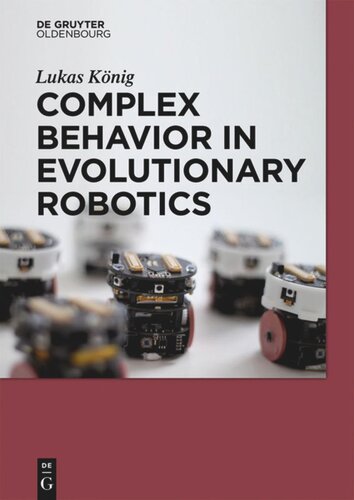

Most ebook files are in PDF format, so you can easily read them using various software such as Foxit Reader or directly on the Google Chrome browser.
Some ebook files are released by publishers in other formats such as .awz, .mobi, .epub, .fb2, etc. You may need to install specific software to read these formats on mobile/PC, such as Calibre.
Please read the tutorial at this link: https://ebookbell.com/faq
We offer FREE conversion to the popular formats you request; however, this may take some time. Therefore, right after payment, please email us, and we will try to provide the service as quickly as possible.
For some exceptional file formats or broken links (if any), please refrain from opening any disputes. Instead, email us first, and we will try to assist within a maximum of 6 hours.
EbookBell Team

4.4
72 reviewsToday, autonomous robots are used in a rather limited range of applications such as exploration of inaccessible locations, cleaning floors, mowing lawns etc. However, ongoing hardware improvements (and human fantasy) steadily reveal new robotic applications of significantly higher sophistication. For such applications, the crucial bottleneck in the engineering process tends to shift from physical boundaries to controller generation. As an attempt to automatize this process, Evolutionary Robotics has successfully been used to generate robotic controllers of various types. However, a major challenge of the field remains the evolution of truly complex behavior. Furthermore, automatically created controllers often lack analyzability which makes them useless for safety-critical applications. In this book, a simple controller model based on Finite State Machines is proposed which allows a straightforward analysis of evolved behaviors. To increase the model's evolvability, a procedure is introduced which, by adapting the genotype-phenotype mapping at runtime, efficiently traverses both the behavioral search space as well as (recursively) the search space of genotype-phenotype mappings. Furthermore, a data-driven mathematical framework is proposed which can be used to calculate the expected success of evolution in complex environments.